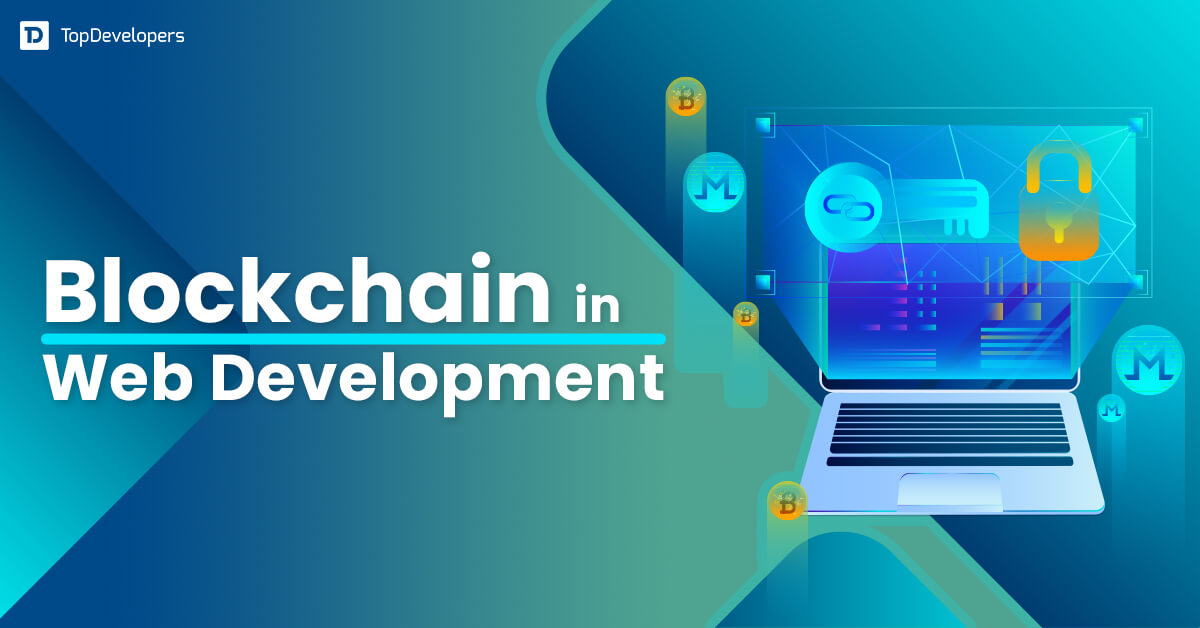
Blockchain technology, best known for its role in cryptocurrencies like Bitcoin, is poised to revolutionize the web development landscape. Beyond cryptocurrencies, blockchain offers a range of benefits that can transform how we build, interact with, and experience the internet.
Key Blockchain Benefits for Web Development:
Decentralization: Blockchain operates on a distributed network, eliminating the need for a central authority. This decentralized nature enhances security and resilience by minimizing the risk of single points of failure. Security: Blockchain's immutable and tamper-proof nature provides unparalleled security for data and transactions. Every transaction is recorded chronologically and cryptographically secured, making it virtually impossible to alter or manipulate. Transparency: Blockchain technology provides transparency and auditability. All transactions are recorded on a public ledger, allowing for greater trust and accountability. Autonomy: Smart contracts, self-executing agreements written on the blockchain, automate processes and enforce rules without the need for intermediaries, reducing friction and increasing efficiency. Scalability: While scalability has been a challenge for some blockchain platforms, ongoing research and development are addressing these limitations, enabling faster transaction processing and improved scalability.
Blockchain Web Development Applications:
Decentralized Applications (dApps): Blockchain enables the development of dApps, autonomous applications that operate on decentralized networks. These applications offer enhanced security, transparency, and user control. Smart Contract Development: Developers can create and deploy smart contracts on blockchain platforms, automating a wide range of processes, from financial transactions and supply chain management to identity verification and voting systems. Cryptocurrency Integration: Blockchain technology facilitates the seamless integration of cryptocurrencies into web applications, enabling secure and efficient payment gateways and microtransactions. Supply Chain Management: Blockchain can be used to track the origin and journey of products throughout the supply chain, ensuring transparency, authenticity, and traceability. Identity Verification: Blockchain-based identity solutions offer enhanced security and privacy by providing users with greater control over their personal data and enabling secure and verifiable digital identities.
Blockchain Technologies for Web Development:
Ethereum: A leading platform for developing and deploying smart contracts, Ethereum offers a robust and flexible ecosystem for blockchain applications. Hyperledger Fabric: A permissioned blockchain platform designed for enterprise use cases, offering enhanced privacy and scalability for business applications. Polkadot: A highly scalable and interoperable blockchain network that enables the seamless transfer of data and value between different blockchains. Solana: A high-performance blockchain platform known for its speed and scalability, making it suitable for demanding applications. Web3.js: A popular JavaScript library that provides a convenient way to interact with the Ethereum blockchain, making it easier for developers to build decentralized applications.
Impact on Web Development:
Enhanced Security: Blockchain technology enhances the security of web applications by providing tamper-proof data storage and reducing vulnerabilities to cyberattacks. Improved Transparency: Blockchain's transparent nature fosters trust and accountability, enhancing user confidence and facilitating secure interactions. Increased Efficiency: Smart contracts automate processes, reducing the need for intermediaries and streamlining workflows, leading to increased efficiency and reduced costs. New Business Models: Blockchain technology enables the development of new business models, such as decentralized marketplaces, tokenized assets, and decentralized autonomous organizations (DAOs). Expanded User Control: Blockchain empowers users with greater control over their data and online interactions, fostering a more user-centric and decentralized web experience.
Challenges and Limitations:
Scalability: Some blockchain platforms currently face scalability challenges, limiting their ability to handle high transaction volumes. Regulatory Uncertainty: The regulatory landscape surrounding blockchain technology is still evolving, creating uncertainty for developers and businesses. Interoperability: Interoperability between different blockchain platforms remains a challenge, hindering the seamless flow of data and value across different networks. User Adoption: Widespread adoption of blockchain technology by users and businesses is still in its early stages. Energy Consumption: Some blockchain platforms, particularly those that rely on proof-of-work consensus mechanisms, have raised concerns about energy consumption.
Best Practices for Blockchain Web Development:
Understand Blockchain Fundamentals: Gain a solid understanding of blockchain concepts, including cryptography, consensus mechanisms, and smart contract development. Choose Suitable Blockchain Platforms: Select the most appropriate blockchain platform for your specific needs, considering factors such as scalability, security, and community support. Implement Smart Contract Security: Employ secure coding practices and rigorous testing to ensure the security and reliability of your smart contracts. Ensure User-Friendly Interfaces: Design user-friendly interfaces that simplify complex blockchain interactions for users. Stay Updated on Regulatory Changes: Stay abreast of the latest regulatory developments and ensure your blockchain applications comply with relevant laws and regulations.
Blockchain technology has the potential to revolutionize the web development landscape, creating a more secure, transparent, and user-centric internet. By embracing this transformative technology and addressing its challenges, developers can unlock new possibilities and build a more decentralized and equitable digital future.